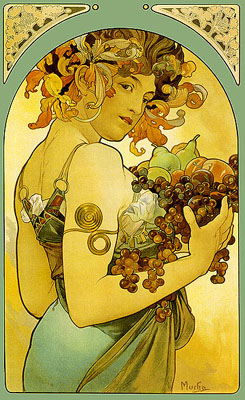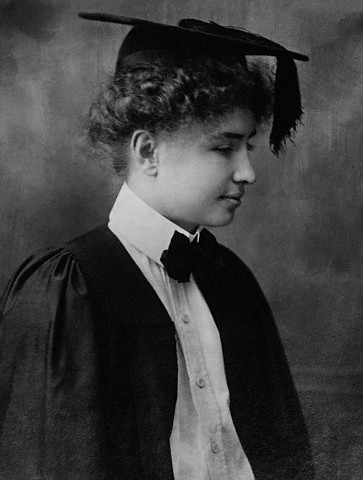 The 1920s, I sometimes think, have become something of a forgotten decade with regard to the many high points in our history that occurred in this period. Our cities and towns had attained what we now think of as their iconic states, alike in architectural and arboreal beauty, as well as cleanliness and liveliness. Have you ever seen photographs of New York City in the 1920s? It is actually gorgeous, and I am talking about at the street level, things like gas stations and drugstores and dance halls and fences and lampposts. The national efforts in literature and music had arguably their greatest and most important decade in the 1920s, both domestically and internationally, even if this fact was not appreciated at the time, and the country was of course at the forefront of the exciting new spectacles of the modern age, cinema, sports, radio and cars. Male dress reached, in my opinion, its all-time peak in the decade, in Britain as well as the U.S. (I know the Prince of Wales at the time, later Edward VIII, is widely regarded as a simpering twit and chum of the Nazis in his country`s hour of need [though even his enemies acknowledge that he had a Bertie Woosterish kind of droll wit], but the wardrobe the man possessed circa 1924 was incredible. If it is preserved in a museum somewhere, it would be well worth seeing). Even lively and imaginative conversation, never a strong American characteristic, seems to have enjoyed a vogue in certain urbane circles during this period. Prohibition would have been hard on me personally, because I would probably not have been either cool or enterprising enough to procure booze for myself very often (and I like booze) and I also would probably have lived in one of the five places in the country where the local authorities were actually zealous about enforcement if I ever did manage to concoct or come into possession of a bottle of gin and gone to the clink for it. But for the people who made the age it was apparently the best, and certainly the most fun time for partying in our national history as well.
The 1920s, I sometimes think, have become something of a forgotten decade with regard to the many high points in our history that occurred in this period. Our cities and towns had attained what we now think of as their iconic states, alike in architectural and arboreal beauty, as well as cleanliness and liveliness. Have you ever seen photographs of New York City in the 1920s? It is actually gorgeous, and I am talking about at the street level, things like gas stations and drugstores and dance halls and fences and lampposts. The national efforts in literature and music had arguably their greatest and most important decade in the 1920s, both domestically and internationally, even if this fact was not appreciated at the time, and the country was of course at the forefront of the exciting new spectacles of the modern age, cinema, sports, radio and cars. Male dress reached, in my opinion, its all-time peak in the decade, in Britain as well as the U.S. (I know the Prince of Wales at the time, later Edward VIII, is widely regarded as a simpering twit and chum of the Nazis in his country`s hour of need [though even his enemies acknowledge that he had a Bertie Woosterish kind of droll wit], but the wardrobe the man possessed circa 1924 was incredible. If it is preserved in a museum somewhere, it would be well worth seeing). Even lively and imaginative conversation, never a strong American characteristic, seems to have enjoyed a vogue in certain urbane circles during this period. Prohibition would have been hard on me personally, because I would probably not have been either cool or enterprising enough to procure booze for myself very often (and I like booze) and I also would probably have lived in one of the five places in the country where the local authorities were actually zealous about enforcement if I ever did manage to concoct or come into possession of a bottle of gin and gone to the clink for it. But for the people who made the age it was apparently the best, and certainly the most fun time for partying in our national history as well.Where then does Norman Rockwell fit into all this? He was just there, man, and if he wasnt the right man for the job on the Michelangelo/Shakespeare standard, he is nonetheless a force in history, in many ways a positive if not an irresistible one. I take him quite seriously. Having grown up in a time when Americans understood what pretty girls looked like, he drew lots of them, and ensured that the taste for a certain kind of American female persona would not be entirely extinguished. The reproduction of this picture came out poorly, which is too bad, because the girl in it is a perfect specimen of this all-American type. You see her and your thoughts immediately turn to scoring touchdowns and walking her home after the next dance. This picture by the way encapsulates a lot of Norman Rockwell`s strengths and faults as an artist. The girl seems to me to be done perfectly; the details of stockings, shoes, dishes (I love the dishes) are exquisite. However he has to make the boy a silly figure, an unworthy subject in comparison with the dirty dishes, let alone the girl. He follows the same pattern throughout his career, creating a background or frame for his pictures that are truly ingenius and subtle, then spoiling it with a frivolous or just too-overwrought subject.
Fitzgerald is traditionally the author most particularly identified with this time in the U.S., at least for the Northeast/prep schools and Ivy League set, and while he is often dismissed as a lightweight by powerful intellects or overwhelmed by the same when they attempt to interpret him, or else is blown up beyond his proper proportion by his philistine American fans (I do not know that he is widely read or admired outside the homeland) he sees in his miniature way what is going on in this often very beautiful though ultimately monstrous country, to my mind, better than any other writer, with the exception of maybe Melville, Faulkner being good on the monstrosities but his beauties being usually as of a foreign country to me. Here is a note I made on Gatsby on July 24, 2005:
*I agree that dreams properly belong to youth, and cannot be exactly lived even then, (but are only the province of mind and memory). The poignancy of Gatsby--and America--is its openness in craving to achieve in maturity or years after the time some state it craved in youth, which seems to be unique to our society. In this viewpoint the future is invariably an illusion and not the theater of great moment, though it deceives us by thinking it will change us. The whole appeal of the Gatsby character lies in his past and his rather adolescent behaviors. His actual adult self is by comparison a rather empty and insignificant figure. This relates broadly to most of the main characters in the story. I love FSF`s images as always. He is one of the few Amer. authors with the ability to see and describe what is really beautiful and poignant in America in a beautiful and poignant manner*
Poignancy is a very important idea to me.
I am going to include a passage of some of those images I profess to *love* because I am in that kind of a mood:
"One of my most vivid memories is of coming back west from prep school and later from college at Christmas time. Those who went farther than Chicago would gather in the old dim Union Station at six oclock of a December evening with a few Chicago friends already caught up into their own holiday gaieties to bid them a hasty good-bye. I remember the fur coats of the girls returning from Miss This or That`s and the chatter of frozen breath and the hands waving overhead as we caught sight of old acquaintances and the matchings of invitations: `Are you going to the Ordways`? the Herseys` the Schultzes`` and the long green tickets clasped tight in our gloved hands. And last the murky yellow cars of the Chicago, Milwaukee & St Paul Railroad looking cheerful as Christmas itself on the tracks beside the gate.
"When we pulled out into the winter night and the real snow, our snow, began to stretch out beside us and twinkle against the windows, and the dim lights of small Wisconsin stations moved by, a sharp wild brace came suddenly into the air. We drew in deep breaths of it as we walked back from dinner through the cold vestibules, unutterably aware of our identity with this country for one strange hour before we melted indistinguishably into it again.
"That's my middle-west--not the wheat or the prairies or the lost Swede towns but the thrilling, returning trains of my youth and the street lamps and sleigh bells in the frosty dark and the shadows of holly wreaths thrown by lighted windows on the snow..."
This is my lost America too, or at least what I have always imagined to be my lost America, and that, that imagined part, is what Fitzgerald understands, what he gets right more than anything else. The 1920s was America`s post adolescent early youth, and now from the vantage point of encroaching middle age we see that she was beautiful and exciting and full of promise then, promises and beauty that have been long lost, and perhaps never were in any reality...
I am quitting for the night.









 Helen managed to look kind of cute in a unconsciously dour, quietly frustrated sort of way. In my most desperate hours to have found the likes of her in my arms would have been practically a cause for ecstasy. I come from a very low and a very foul country of the spirit, which paintings and literature and history and all things high merely reinforce in some manner.
Helen managed to look kind of cute in a unconsciously dour, quietly frustrated sort of way. In my most desperate hours to have found the likes of her in my arms would have been practically a cause for ecstasy. I come from a very low and a very foul country of the spirit, which paintings and literature and history and all things high merely reinforce in some manner. 




